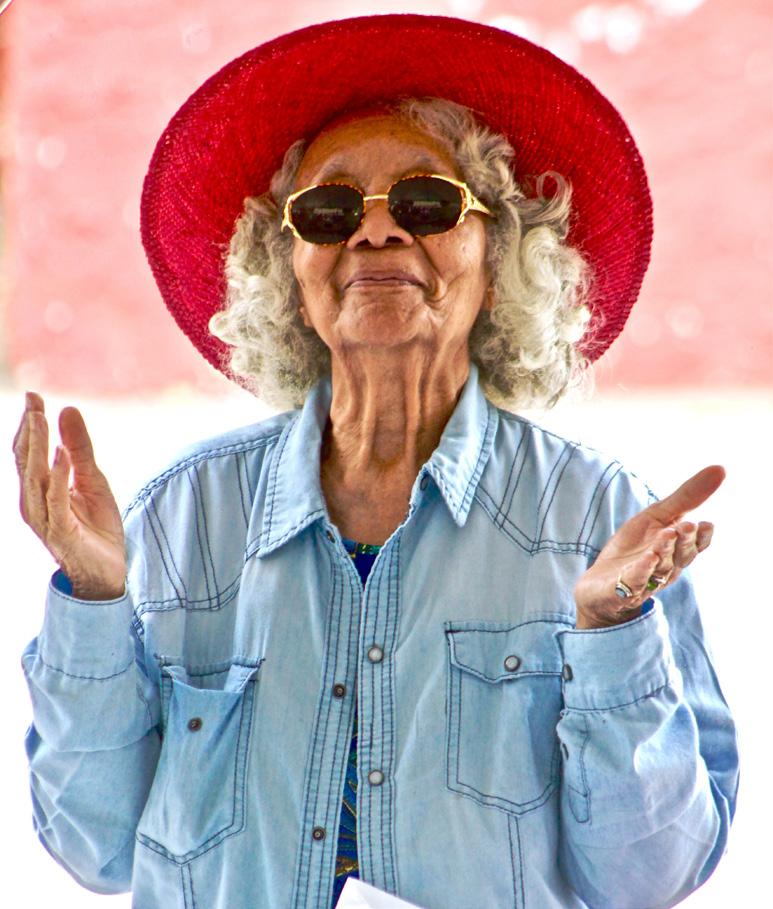
6 minute read
» Travel
Important tips for traveling with aging loved ones
By SHERYL NANCE-NASH
Special to the AmNews
No doubt, traveling with the most precious cargo in your life, an aging loved one, be it a parent, grandparent, or auntie or uncle, can be a little daunting. You want no drama, whether you’re en route with a specific mission like getting from Point A to Point B for practical reasons, or you’re vacationing together. The experts weigh in with advice on how to travel well with an aging loved one.
Talk before hitting the road
Christina Grace, who writes for the adventure family blog, Live a Wilder Life, started bringing her aging father, who had a major stroke and is severely impaired, along on trips with her young child. She offers a few things to think about before traveling.
Manage your expectations. “We are an active family willing to get up at 6 a.m. if it means avoiding crowds and having a more enjoyable time. When I travel with my dad, I know I have to sacrifice early morning wakeups and nonstop itineraries. He needs a lot of sleep and breaks in the day to rest.” Anticipate that the pace will be slower than it would if you were traveling without them. You may not see every attraction. Be flexible.
Decide what’s important to you before you go. “Have a clear intention on why you’re traveling together and what you want from it. For me, it’s to spend quality time with my dad and to help my dad travel and see the world since he requires a lot of extra help. Knowing the intention allows you to craft a clear itinerary based upon the goals of your trip,” she says.
Talk beforehand about what everyone wants. Have a clear idea of what everyone desires from the trip. Does one person want to go to a specific restaurant? Does another want to hang out by the pool all day? “Find out what’s important to each person so everyone can get their needs met,” says Grace.
Choose accommodations wisely
“Make sure that there are elevators in the hotels and rooms should be close to the elevators,” says Nicole Hunter, a travel blogger for Go Far Grow Close, who has traveled extensively with her 80+ year-old parents.
When staying in a hotel, it’s a good idea to book a handicapped room because accidents can happen more easily when an aging parent is in unfamiliar surroundings and handicapped rooms are more user-friendly, she says.
Inquire about stairs, and general accessibility. For example, are the resort restaurants a 15minute walk away from rooms, are there wheelchairs, or golf carts to assist you in getting around?
Pick a home base that works for everyone. “A lot of the time my interests and my parents’ interests are different and that means what we want to do on holiday is different. Accordingly, if they want to spend the day at the pool, reading, napping and going for short walks, and I want to hike in a national park, I try to find accommodations that give them a nice pool and recreation area, and I would want to be near or in the national park. The key is to think about this, be aware, compromise and do your best,” says Hunter.
Also make a point to check for meal service alternatives if your parents have dietary restrictions.

(alisadyson/Pixabay photo)
Be selective about seating and travel method
No matter how you travel, consider where your parents sit. When flying, an aisle seat with a moveable arm may be best. When flying, shoot for non-stop flights. Long layovers or catching a connecting flight can be stressful for them. Know too that there are some airlines that offer senior airfare discounts and services. All airports offer free use of wheelchairs to senior citizens.
Train travel can be ideal for seniors as they kick back and take in the scenery. For train travel, ensure that they will have room to stretch their legs and are seated near restrooms to avoid long walks. “You don’t have to be sitting across from it, I know that can be unpleasant, but nearby is important since rocking trains and turbulent planes make footing unstable, and older people typically need to use the restroom more frequently,” says John Gobbels, chief operating officer of Medjet, an air medical transport and crisis response membership program for travelers.
If you are going in a car, make sure the seat belts work, and the back seat is comfortable. Be prepared to make stops every couple of hours or so for bathroom breaks and for leg stretching. Do bring disposable pads, just in case.
Mo Mulla, founder of Parental Questions, says to keep in mind that there is the possibility your parent will try to get up when they’re not supposed to or leave where they’re not supposed to. “For cars you need a way of blocking their access to the driver’s side door (a stuffed animal does the trick).”
If you’re renting a car, consider what type of car your aging adult will be able to get in and out of the easiest. You might need to pass on the sporty, flashy ride if it won’t be easy for them to navigate physically.
Expect the unexpected
“When traveling with a senior, be prepared for a potential medical emergency,” says Mulla. Make sure their medical care cards are up to date, you know where their medical alert bracelet is located (if they wear one), and make sure the meds explicitly prescribed for travel are easily accessible.
Be mindful that patients with dementia do not take change well. “Be careful when deciding to take mom or dad along if there is a chance that behavior problems or dealing with medical problems may cause problems for the whole family,” says Teri Dreher, RN of NShore Patient Advocates.
Double and triple check that you have all their medication before leaving home. “A medication checklist is a must, because it can be difficult to replace certain medications in many destinations, especially with the pandemic-related supply chain disruptions. In the past, we’ve had members forget medication, think they’ll get by without it, and land in the hospital. Don’t let your parent do that. Pack an extra 50% of what they’ll need for your trip, in case of delays, and split it between their carry-on and a checked bag in case one is lost or stolen,” says Gobbels.
Bring an extra pillow and throw blanket. An extra pillow can help an aging parent in positioning to get comfortable and the throw blanket can come in handy if your parent is on blood thinners and feels cold at times.
Take care of yourself too
Don’t forget to take care of the caretaker. “If you can afford to, consider taking an assistant/caretaker along on the trip with you to help manage things. It would allow you to enjoy things more, without so much worry, and allow a little solo, or ‘check-in-with-work’ time if you find the need during the trip,” says Gobbels.
Maybe you build in spa time for the two of you, or you do something special for yourself during their nap time. The goal is for everyone to return home better than when they left and to come back with cherished memories.










